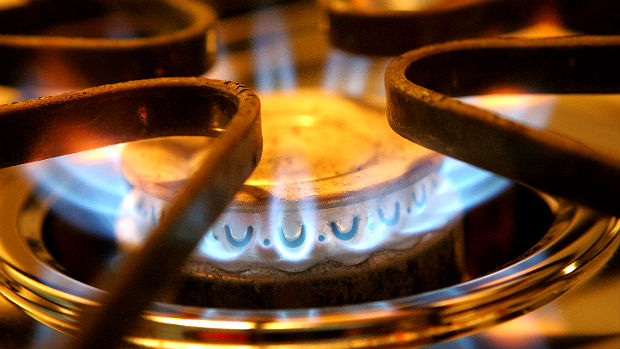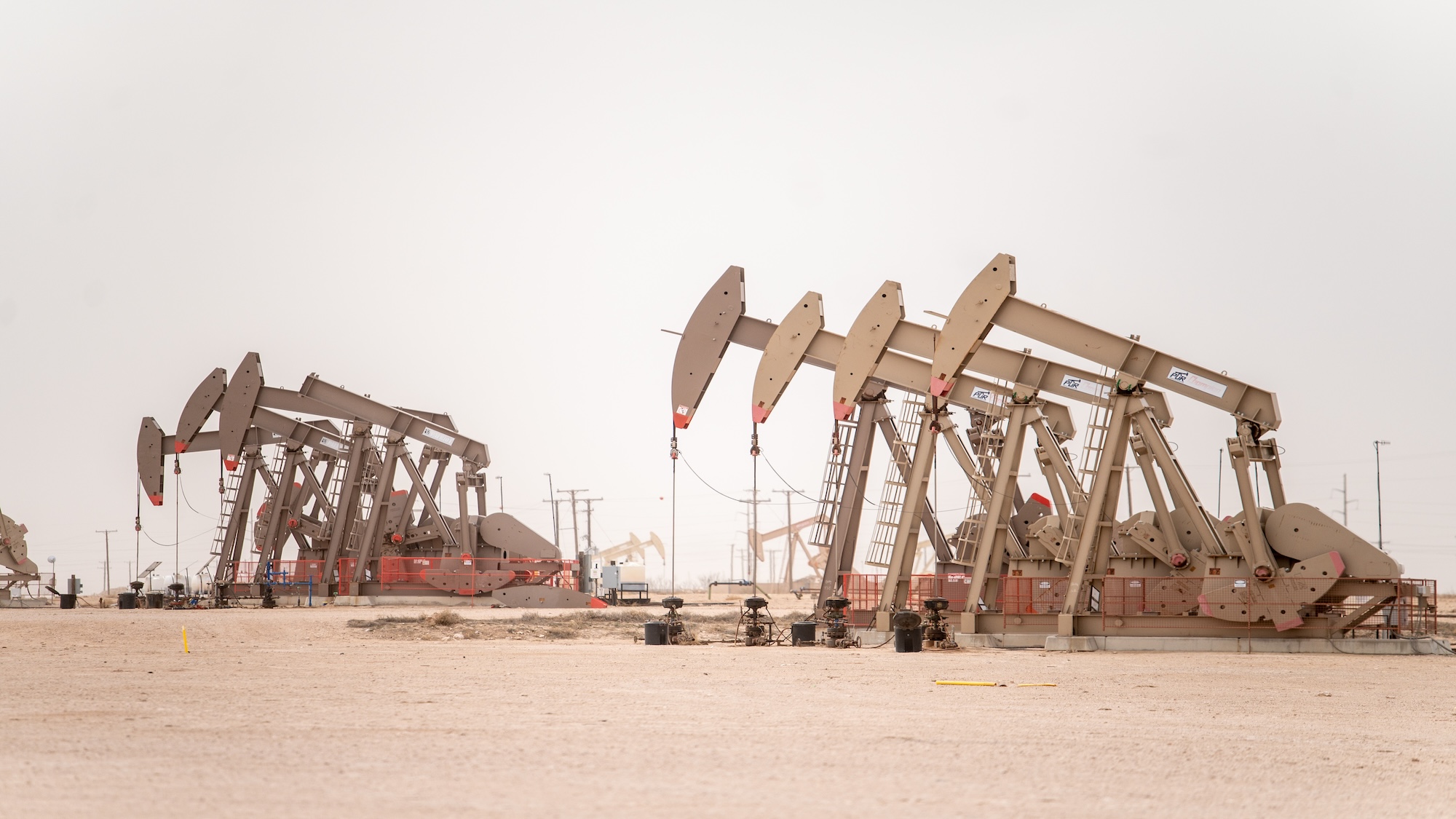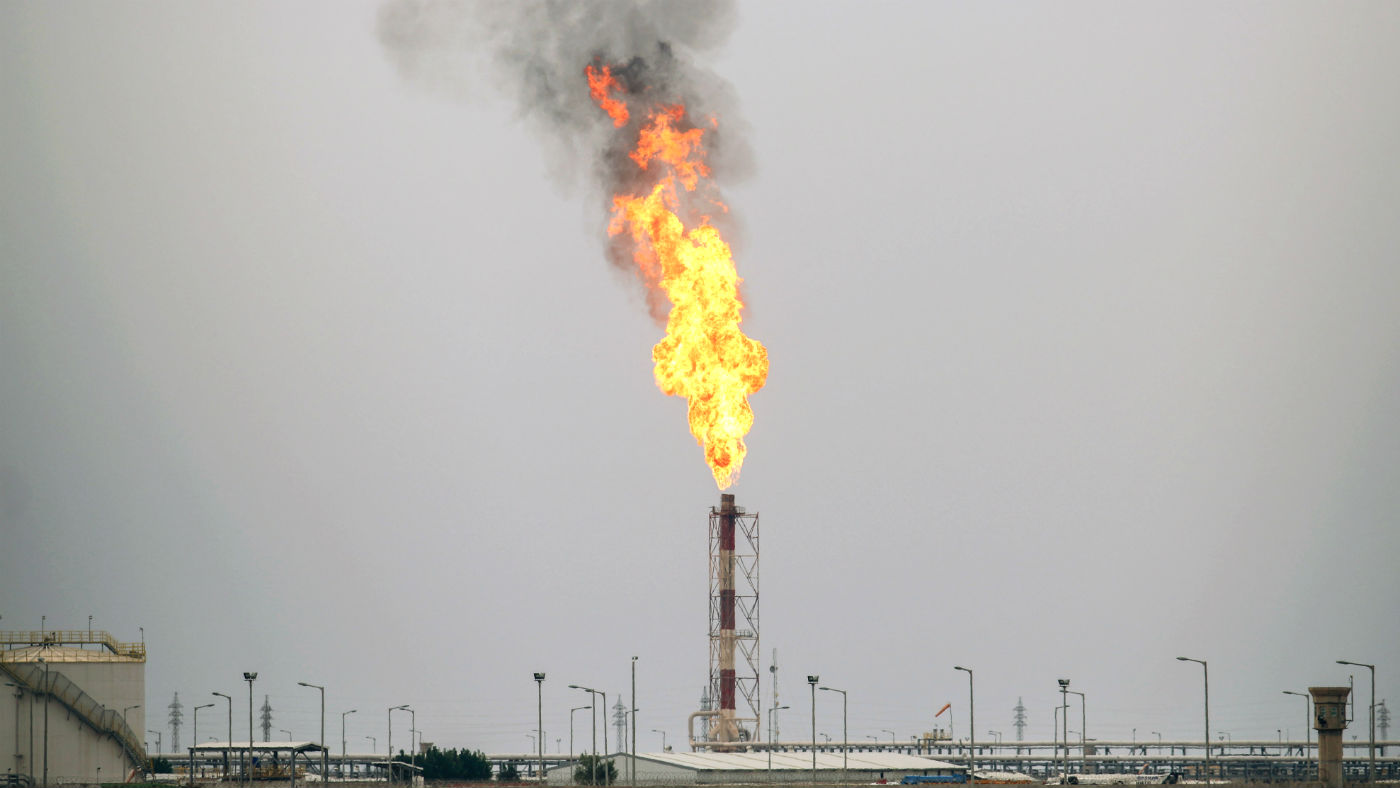From oil to gas: how businesses can make the change
These days, even companies in remote rural settings can benefit from the cost savings associated with gas

For large industrial businesses, especially those in remote locations, the prospect of switching their energy source from oil to gas may seem unfeasible or impractical. However, that is no longer the case. With help from E.ON, businesses can now make the move and save money.
How could your business benefit from switching from oil to gas?
The most significant benefit is a reduction in energy costs: with gas prices low relative to the cost of oil, E.ON customers who have made the switch have seen significant savings to their fuel costs, and a quick return on the cost of their initial investment.
The Week
Escape your echo chamber. Get the facts behind the news, plus analysis from multiple perspectives.

Sign up for The Week's Free Newsletters
From our morning news briefing to a weekly Good News Newsletter, get the best of The Week delivered directly to your inbox.
From our morning news briefing to a weekly Good News Newsletter, get the best of The Week delivered directly to your inbox.
Cost savings are not, however, the only benefit. Gas is a more convenient fuel source, always on tap, meaning that you no longer have to worry about scheduling fuel deliveries. Eliminating the need for road transport also benefits the environment – and burning gas results in significantly lower emissions than burning oil.
How hard is it to make the switch?
E.ON's dedicated Connection Services team can help advise businesses about all facets of switching from oil to gas. Once they have provided a quote for bringing gas onsite, they will work closely with the business to assist with the technical aspects of switch.
Case study: First Milk Group takes the plunge
First Milk Group – a national and international supplier of cheese and dairy products owned by a group of family farms – is just one example of a British business enjoying the benefits of a new gas supply. It decided to replace the oil-fired boilers at its Haverfordwest creamery in Wales in order to cut fuel costs and reduce its carbon footprint.
How did it happen?
According to Tony Carter, the group's project engineer, E.ON began by taking a tour of First Milk's premises to get the measure of the company's requirements.
"E.ON visited the creamery to understand exactly what we needed," Tony says. "The switch to gas involved installing a new 745-metre pipeline, to bring gas from the local high pressure gas main into our boiler house. It was a complex project, which took 18 months, but E.ON used the best contractors at each stage, to make sure things ran smoothly."
Throughout the project, Tony had a single point of contact at E.ON, who kept him up to date with the pipeline's installation. A reporting matrix designed for the project team ensured that people only ever received updates relevant to them, thus shielding them from being inundated with unwanted information.
What obstacles had to be overcome?
Perhaps inevitably on such a big project, there were some complications, largely resulting from the need to route the new pipeline across farmland and railway tracks.
"E.ON understood the commercial impact of the project and managed everything from start to finish, including liaising with planners, the local network operator and landowners," Tony explains. "This was particularly important as the pipeline had to cross farmland and navigate 12 metres under a railway line, so they worked closely with the farmer and Network Rail."
How did the company benefit?
Tony says First Milk Group's owners have been delighted with the results of the conversion. "Now we have a consistent source of energy without the need for oil deliveries, and we've almost halved our steam generation costs," Tony said. "All in all, another great job by E.ON."
Find out more
Our dedicated team is here to help, whatever your business needs. Call 0330 400 1723
We're here from 8am to 5pm Monday to Thursday, and 8am to 4.30pm on Friday. Or email siteworks@eon-uk.com
You can also find out more at www.eonenergy.com/connectionservices.
A free daily email with the biggest news stories of the day – and the best features from TheWeek.com
-
 Political cartoons for February 19
Political cartoons for February 19Cartoons Thursday’s political cartoons include a suspicious package, a piece of the cake, and more
-
 The Gallivant: style and charm steps from Camber Sands
The Gallivant: style and charm steps from Camber SandsThe Week Recommends Nestled behind the dunes, this luxury hotel is a great place to hunker down and get cosy
-
 The President’s Cake: ‘sweet tragedy’ about a little girl on a baking mission in Iraq
The President’s Cake: ‘sweet tragedy’ about a little girl on a baking mission in IraqThe Week Recommends Charming debut from Hasan Hadi is filled with ‘vivid characters’
-
 How might the Israel-Hamas war affect the global economy?
How might the Israel-Hamas war affect the global economy?Today's Big Question Regional escalation could send oil prices and inflation sky-high, sparking a worldwide recession
-
 Recent mega-mergers could signal a turning point for the US oil industry
Recent mega-mergers could signal a turning point for the US oil industryTalking Point Both Chevron and Exxon have recently spent billions to acquire smaller oil companies
-
 Has Saudi Arabia lost control of oil prices?
Has Saudi Arabia lost control of oil prices?Today's Big Question Kingdom goes it alone to cut production, risking tension with US and reigniting cooling inflation in Europe
-
 US angered by Opec+ oil cut
US angered by Opec+ oil cutSpeed Read Energy prices to rise further as producers slash supply by two million barrels a day
-
 Global oil demand forecast lowered for 2020 and 2021
Global oil demand forecast lowered for 2020 and 2021Speed Read IEA report says jet fuel demand remains the major source of weakness
-
 Are US-Iran tensions flaring again?
Are US-Iran tensions flaring again?In Depth Trump threatens military action over Twitter
-
 Can a deal be struck to raise oil prices?
Can a deal be struck to raise oil prices?In Depth Opec+ will convene today over video link in a bid to boost crude
-
 What do negative oil prices mean?
What do negative oil prices mean?In Depth Perfect storm of oversupply and storage shortages sees producers paying to get rid of US crude